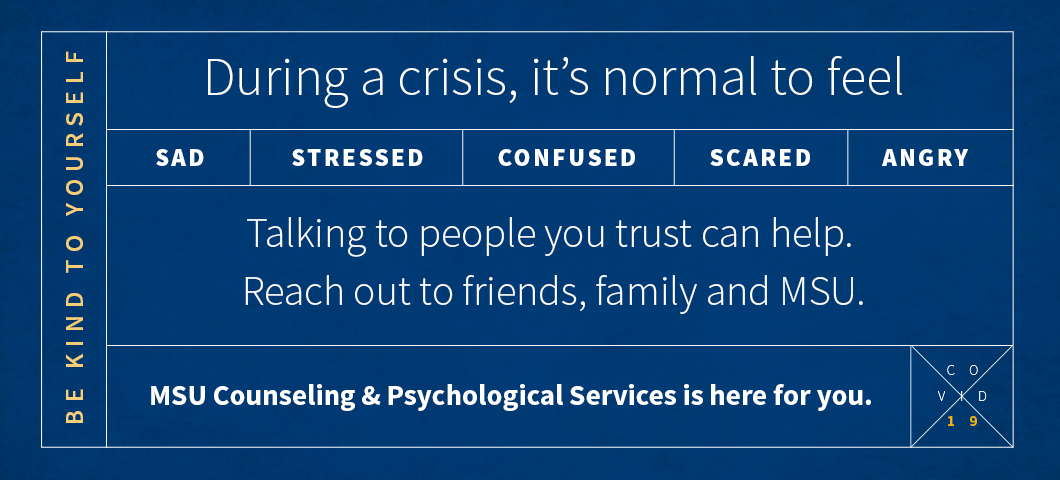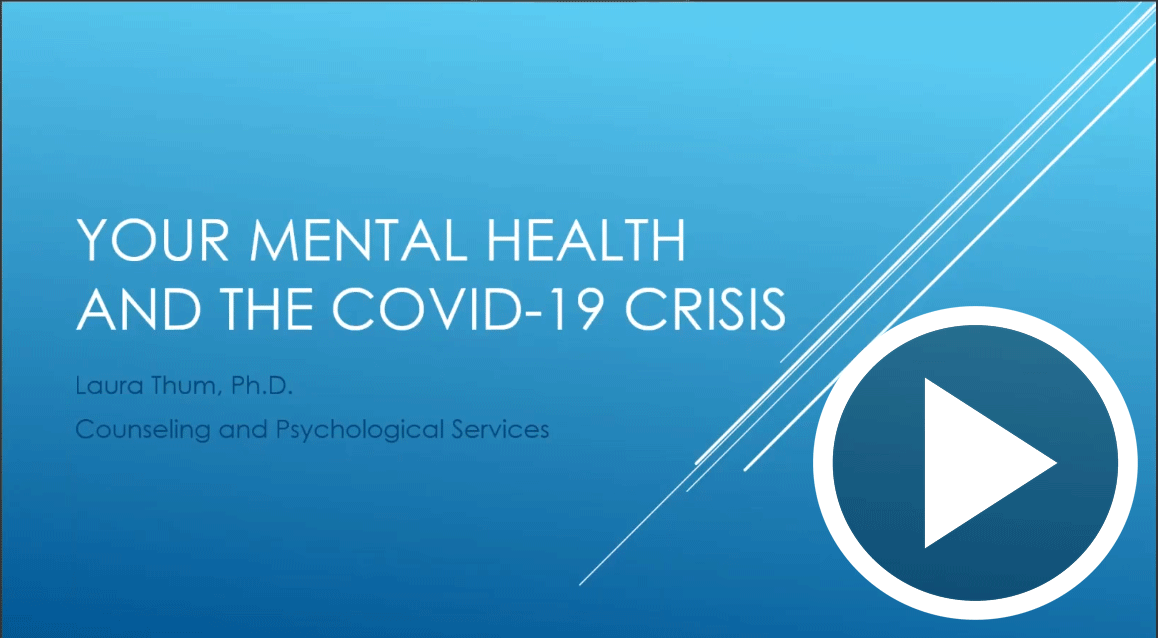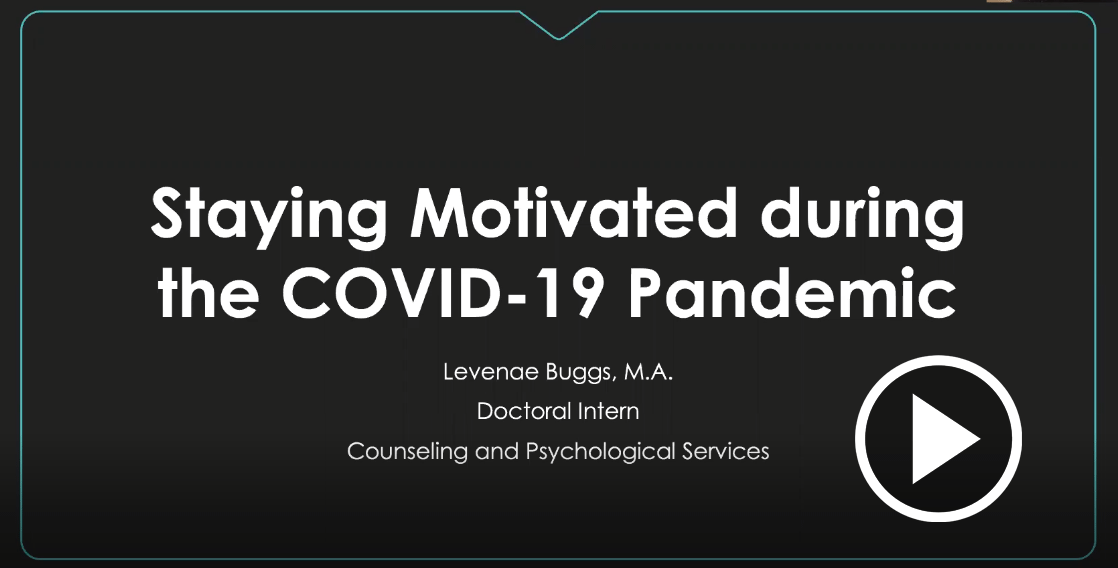Tools for coping with COVID-19
Common emotions in the face of this crisis:
It’s common to experience a range of emotions and behaviors given this situation and the changes to our lives. Common emotions in response to covid-19:
- Anxiety and worry—about yours or others health, about the unknown
- Apprehension about school, work, finances
- Anger and frustration, feeling helpless
- Depressed mood
- Loneliness
- Increased desire to use substances
- Lack of motivation
- Sleep and appetite disturbance
- Relief at being at home, at not having to go to classes in person, etc.
Self-Care
- Anxiety results when we feel out of control of something. This current pandemic creates
a lot of unknowns and for the most part is out of our control. Focusing on those things
you can control can help decrease anxiety. For example:
- Focus on those daily habits that you are control of (see point about maintaining a schedule below)
- Limit your time on social media. When you do use it, use it in an intentional way (e.g. to connect with others versus mindlessly scrolling)
- Limit your time reading the news but please keep informed! Follow reliable sources of news and limit how many times a day you read it (maybe once in the morning and again later in the day). Good sites are:
- Use self-soothing and self-calming strategies such as, playing with your pet, taking a hot shower or bath, listening to music, or engaging in mindfulness activities (see https://www.montana.edu/counseling/selfhelp/selfhelp/mindfulness.html)
- Maintain a schedule: Try to create a bit of structure to your day by maintaining a consistent bedtime and waketime, setting times for school, exercise, entertainment, etc. This will help you have a sense of intention to your day and maintain some sense of normalcy.
- Incorporate physical activity: Get outside for a walk, run, or bike ride (while still practicing safe distancing!). Activity helps release much-needed endorphins, as well as compensates for our increased levels of inactivity. Rec Sports has a great list of online options here: http://www.montana.edu/getfit/be_well_keep_moving.html
- Connect with others via FaceTime, Skype, Zoom, etc.
- Use prevention and wellness apps to help track your mood, engage in relaxation exercises, or to simply remind you to take a deep relaxing breath! The WellTrack app (montana.welltrack.com) is free to MSU students and has a wealth of self-help and relaxation strategies. Download the app and register with you MSU student ID. Other apps like Calm and Headspace also provide relaxation and stress management.
- Practice gratitude: There are a lot of ways that the COVID crisis has challenged us, and it’s important to acknowledge the stress, anxiety, sadness, and anger that it’s caused. It can also be helpful to take moments to find gratitude among the chaos. What ways has this brought you closer to friends or family? What stressors were reduced due to cancellations? What is nice about getting to stay home? While certainly not minimizing the many challenges this brings, finding gratitude is a healthy coping strategy that can help balance the scales when we are stressed beyond measure.
How to Stay connected:
Depression and anxiety can increase with increased loneliness and disruptions to our daily lives and schedule. It’s important to be intentional with connecting even in times of social distancing.
- Take advantage of Facetime, Zoom, WebEx, and other tech to stay connected—texting is fine but reaching out visually, through video chat, increases your felt sense of connection.
- Take time to reach out to friends or relatives you haven’t talked with in a while. Again, try using video methods to do so.
- Play games with friends and family online.
- Schedule virtual coffee dates, Netflix watching nights, and meals!
- Find an online community of people who share an interest or passion of yours. If you’ve been wanting to learn something, join a group to learn more about whatever it is!
- Connect with campus--Most MSU offices and programs are still available through online formats, so if you need any assistance, call for support. Many clubs and organizations continue to have online meetings as well, so check in with your student clubs to see if they are still operating until the end of the semester.
Reminder:
Counseling and Psychological Services is open! Students can call to set up a telehealth appointment or phone consult M-F 8-5pm. (406) 994-4531
Office of Health Advancement is open to schedule telehealth nutrition and wellness coaching! 406-994-4380
*And please remember to practice safe-distancing and proper handwashing! MSU is a strong community with a culture of care. Let’s care for others in this crisis by doing those things we can do to keep everyone safe!*



